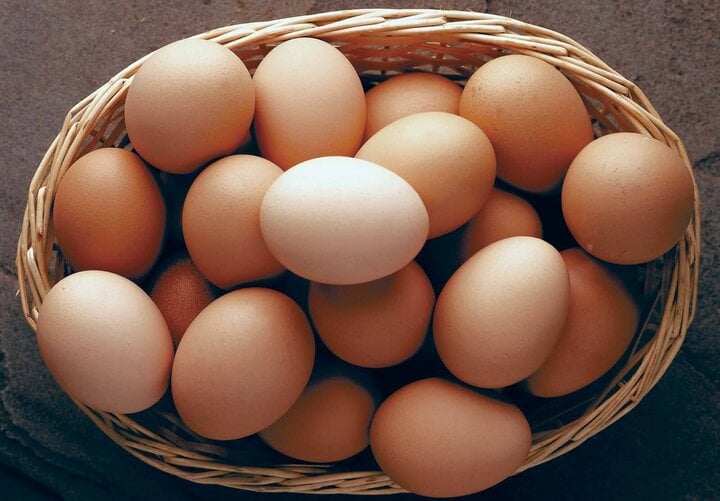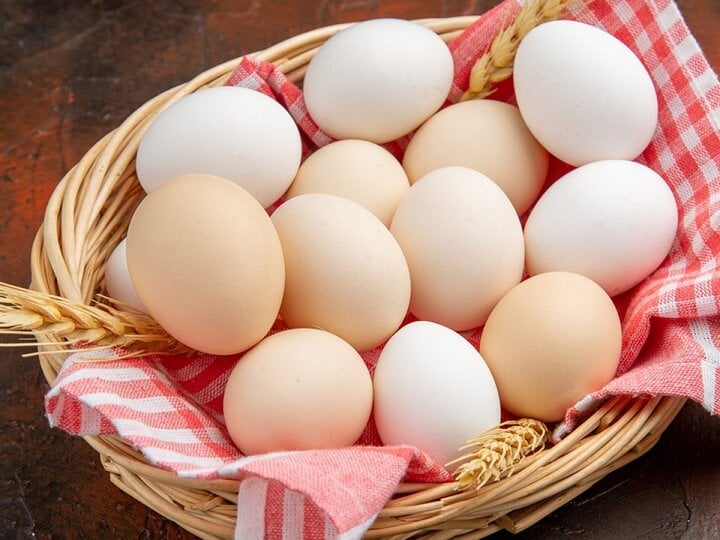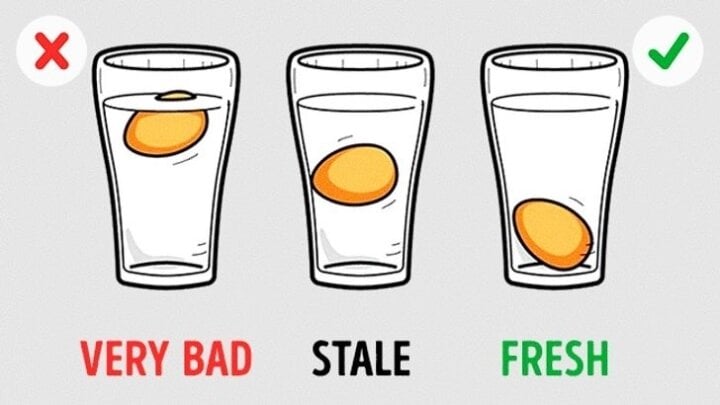Eggs are a perishable product, so it is important to store them properly and consume them within a certain timeframe.
How long can eggs be stored?
According to Healthline, in the United States and some other countries like Australia, Japan, Sweden, and the Netherlands, eggs are always refrigerated instead of being stored at room temperature. Eggs are washed and sanitized immediately after being laid to prevent Salmonella, a bacteria that causes food poisoning, from poultry products. This process can damage the natural protective cuticle of the eggshell and even make it easier for bacteria to penetrate. Therefore, eggs should be stored at a temperature below 4 degrees Celsius.
Properly storing eggs in the refrigerator, combined with the protective shell and enzymes, rarely results in spoilage if they are handled and stored correctly.

‘How long eggs can be stored depends on the storage conditions. (Image: Pastures Poultry)
The storage conditions will determine how long eggs can be stored. Specifically, eggs stored at normal room temperature can be kept for about 7-10 days. Eggs stored in the refrigerator or properly refrigerated can be kept for about 5-6 weeks.
According to the U.S. Food and Drug Administration, eggs should be handled and refrigerated promptly after purchase. It is recommended to store eggs in their original carton to prevent absorption of odors and protect them from temperature fluctuations when the refrigerator door is opened and closed.
So, how long can eggs be stored at room temperature? Unwashed and unrefrigerated eggs can be safely stored at room temperature for 1-3 weeks. However, after about 5 days at room temperature, the quality of the eggs will begin to decline.
After about 21 days, the natural defense ability of the eggs will be significantly reduced. At this point, you can store the eggs in the refrigerator to prolong their shelf life, but they will not last as long as eggs that have been refrigerated since purchase.
How to tell if eggs are too old
To avoid ruining your cooking plans with spoiled or low-quality eggs, you can refer to the following suggested methods to determine if eggs are too old.
Observe the eggshell

Observing the eggshell is the easiest way to determine if eggs are too old. (Image: Mymrgrocery)
This is the easiest method to determine if eggs are too old. Look at the eggshell, if you see a thin layer of white powder, that means it is a fresh egg. Old eggshells are usually shinier, without the thin layer of protective powder; the shells may be scratched, cracked, discolored, and the eggs may not appear fresh.
Hold and feel the eggshell
You can hold the eggs in your hand and gauge their weight. Heavier eggs are fresh, while lighter ones are old.
When touching the shell, if you feel roughness or grittiness, it is a fresh egg. Smooth and silky shells are an indication of old eggs or eggs that have been bleached.
Gently shake the egg
Hold the egg up to your ear and give it a gentle shake; if you hear a sound, the egg is old. Eggs that move vigorously and make a sloshing sound are spoiled. If you shake it and hear no sound, it means the egg is fresh.
Hold the egg up to a light source
Hold the egg up to the light, and you will be able to see the interior. If the air pocket inside the eggshell is small, the yolk is immobile, and the whites are without veins, it is a fresh egg. A large air pocket, a lot of veins in the whites indicate that the egg is old and should not be purchased.
Smell the egg
Smelling is also a reliable method to determine if eggs are too old or spoiled. Spoiled eggs have a distinct odor, which cannot be mistaken, whether raw or cooked.
If you cannot determine when the eggs are still in the shell, crack the egg onto a clean plate or bowl and smell it. If it has a foul odor, dispose of it and clean the dish with hot, soapy water before reusing.
Float test

The float test is a popular method. (Image: Brightside)
This is a widely used method to determine if eggs are too old. Fill a glass with water and gently place the egg in it. If the egg sinks, it is fresh. If it tilts or floats, it is old. Eggs that are no longer fresh but not too old will float in the water.
When observing, if you see the pointed end of the egg pointing downward, it is a fresh egg, while the wide end pointing downward indicates an old egg.
Source: VTC





































